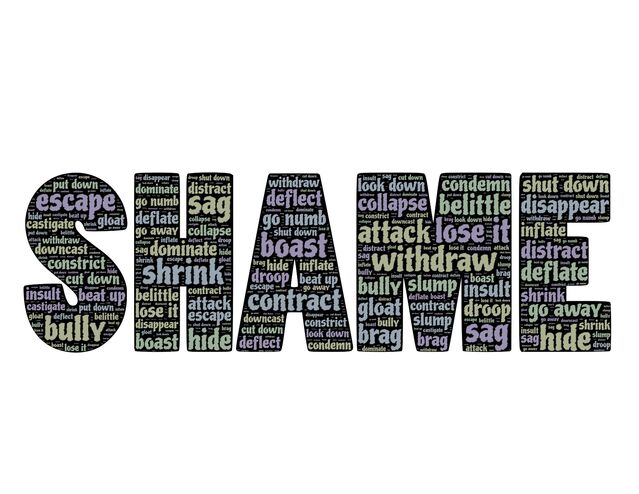Embarrassment
The Shame Trap: I Am a Mistake
A Personal Perspective
Posted July 9, 2021 Reviewed by Lybi Ma

Linda: There is a difference between shame and guilt. Guilt means I made a mistake. Shame means I am a mistake. Shame is an immensely painful feeling that we are all alone, unworthy of love and belonging. There are incidents in our history that have been hidden from view because they are so painful. The specific incident or series of incidents are not what is most damaging to our lives, it’s the secrecy that does it.
It is the secrecy that causes chronic stress that harms both our emotional well-being and physical health. The damage to our life can show up as depression, anxiety, addiction, eating disorders, aggression and hostility, and a lack of closeness in our relationships. The silence and judgment that accompany shame are all like keeping a wound under a heavy bandage where it cannot get air or light to heal. The infection under that cover worsens the condition. The only way to healing can take place is to remove the cover to share the shame with another person. When the infection is exposed to air, which represents empathic listening to the pain around the incident or incidents, healing immediately begins to occur.
A great place to start when healing shame is to have a bit of compassion for ourselves. We didn’t know better how to handle that difficult situation that led to the shame-filled behavior. When we upgrade from shame to guilt, we are moving toward healing. For in the telling about making a mistake, using poor judgment, and making an unskillful choice is a bit easier to confess than the global assessment of being a bad, wrong, unworthy person. The judgment is about the behavior rather than the person.
We will surely continue to suffer greatly until we reach out to at least one human being to share our shame.
Breaking the silence, even if it is only one trustworthy person who now knows the truth, combats the awful feeling of being alone. Bringing the shame out from the dark shadow realms allows us to learn that we are all flawed, and can still be loved and belong. We deeply know that we are not an outcast because of our imperfections. No longer burdened by the heavy secret, the belief begins to crumble away that we will be disrespected and shunned if people knew the truth. The healing takes place when we experience that not only are we loved despite our imperfections, but because of them.
In the speaking of that which was formerly unspeakable, shame loses its power over us. The judgmental way we spoke to ourselves before about being irreparably damaged, despicable, ugly, perverse, unacceptable, stupid, weak, unworthy, and unlovable begins to crumble away. Basking in the bright light of the listener’s empathy and care, we can begin to bring that warmth and affection to ourselves. The grip of the secret is finally broken.
Don't wait too long to get help. The average couple that enters marriage counseling has been troubled for six years. By this time, it's likely that workable difficulties have disintegrated into entrenched patterns. By all means, do everything that you can to handle challenges on your own, but be willing to recognize when your best efforts aren't doing the trick. These words will help you remember how to get out of the shame trap.
Reveal rather than Conceal
Express rather than Repress
Connect rather than Protect
Accept rather than Reject


